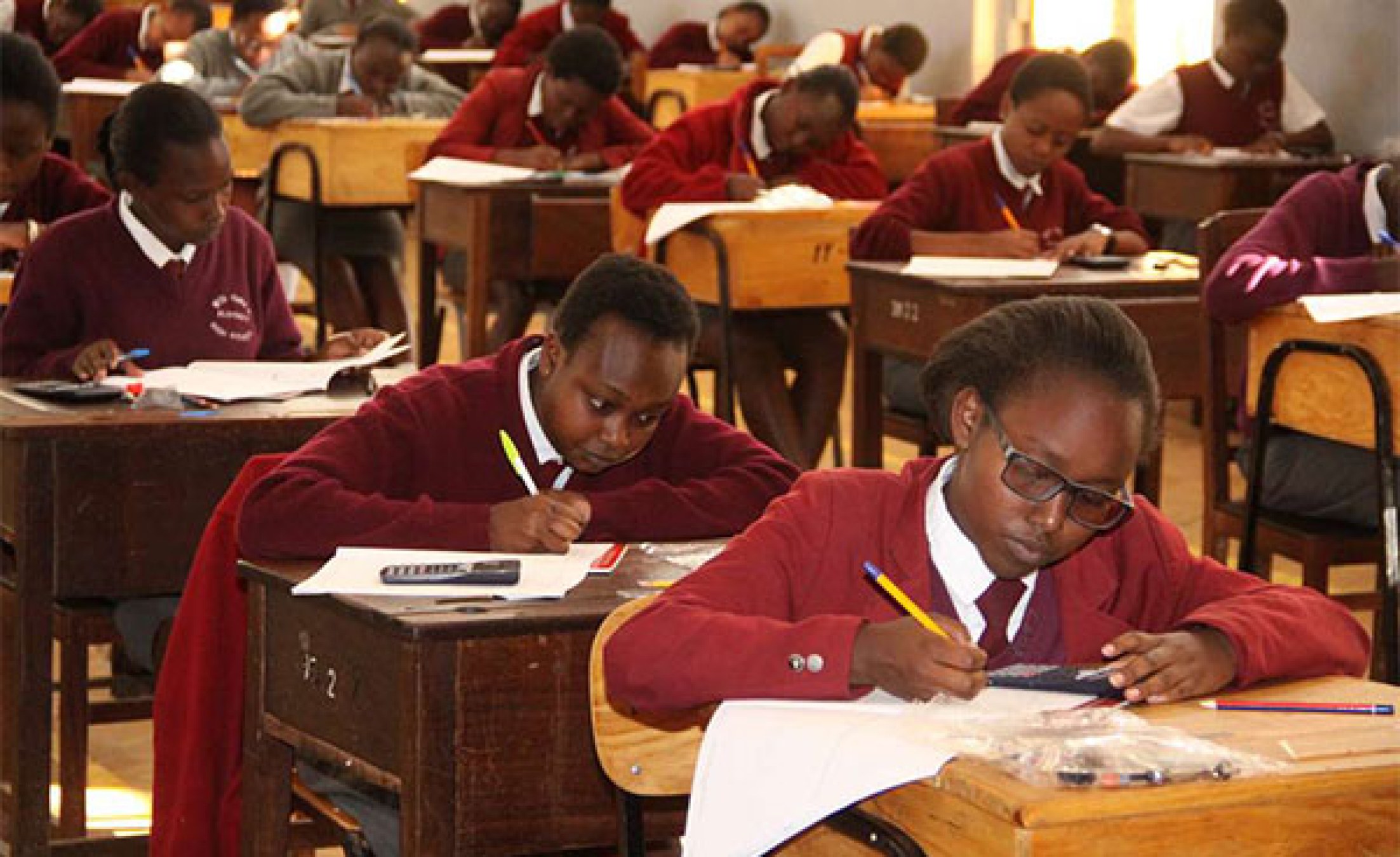
 Candidates sit for a past KCSE exam /FILE
Candidates sit for a past KCSE exam /FILEThe government has confirmed that parents will, from next year, start shouldering the burden of examination fees when the scrapping of the decade-long exam waiver takes effect.
While the news comes with some sense of relief following mounting anxiety amongst parents that the lifting of the waiver would take effect this year, removal of the remission will pile financial pressure on households already grappling with school fees and the high cost of living come next year.
National Treasury Cabinet Secretary John Mbadi justified the policy shift, saying the examination subsidy has become unsustainable due to rising costs of competing priorities in the education sector amid budget deficits.
"We have to review the cost in the sense that why should we pay for examinations for all students, including those in private schools? We should be subsidising examination for those who cannot afford it, especially in public schools," Mbadi said during an interview with NTV.
He, however, assured parents, guardians, and learners that despite there being no allocation of an exam waiver in the 2025-26 budget estimates, plans had already been made to ensure all candidates sit exams at no cost.
"For this year, it's too late. We are going to process examinations for all candidates, whether you are able (to pay) or not."
Mbadi said come next year, the Ministry of Education will have to come up with a differentiated model of charging parents examination fees such that only learners from vulnerable households enjoy exam waivers.
"If today my child is doing KCSE, the government pays for that child, and its the child of a CS, why should that be the case? We cannot afford to subsidise people who don't need the subsidy," he said.
Introduced in 2016 under former Education Cabinet Secretary Fred Matiang’i, the exam fee waiver was designed to ensure that no student missed their Kenya Certificate of Primary Education (KCPE) or Kenya Certificate of Secondary Education (KCSE) exams due to financial constraints.
Currently, the government covers the entire registration fee of Sh7,200 per candidate.
However, the Parliamentary Budget Office (PBO) recommended ending this waiver, citing unsustainable costs amid rising student enrollment and a Sh91.8 billion deficit in the education sector.
The PBO suggested a cost-sharing model where parents contribute to exam registration fees, potentially freeing up Sh5 billion annually for other educational priorities like capitation.
The exact cost breakdown under the proposed differentiated model is not clear, but Mbadi mentioned, in passing, Sh5,000.
He said the Ministry of Education will come up with a criteria of determining deserving candidates for the exam waiver, dismissing concerns that this would amount to segregation in a country where education is supposed to be free.
"All children will get basic education; the government will facilitate that (but) those who are capable of providing education to their children should provide education to their children," he remarked.
"In any case, they provide in private schools and many other places. When it comes to examination, why then should you surrender that responsibility to government?" Mbadi posed.
Plans to print exams locally
The Treasury CS further revealed that plans are underway to further ease the burden of administering national examinations by printing the papers here in Kenya at a cheaper cost.
The Kenya National Examinations Council (KNEC) has historically printed KCPE and KCSE examination papers abroad, primarily to safeguard the integrity of the exams.
This practice has been notably expensive, with the cost of printing examination papers abroad standing at approximately Sh1.5 billion per year.
In 2021, due to disruptions caused by the Covid-19 pandemic, two sets of national exams were administered, doubling the printing cost to around Sh3 billion for that year.
These figures highlight the substantial financial resources involved in the administration of national examinations and the ongoing efforts to optimise costs while maintaining exam integrity.
The Presidential Working Party on Education Reforms recommended that KNEC begin printing exams locally to not only reduce costs, but to also enhance efficiency.
"We must make sure that the printing of exams is done cheaply," Mbadi concurred. "So we are working around to see how we can better do the printing of examinations without compromising the quality and integrity of the same."
He said Kenya has over the years been obsessed with printing things abroad, yet it prints passports locally despite them being more security-sensitive documents.
"You can even use the Government Printer, for example, to print examination. The only thing you need to do is to provide clear security checks and safety of those examinations."
Mbadi, however, emphasised that robust security measures would need to be established, without which even exams printed abroad would still be compromised once shipped home.
"You will still end up having the examination leaked, and it has happened many times. So, let us make sure that the cost of managing examinations in this country is contained to the bare minimum, guaranteeing quality of the same and safeguarding the examination because we don't have too many resources to waste."









